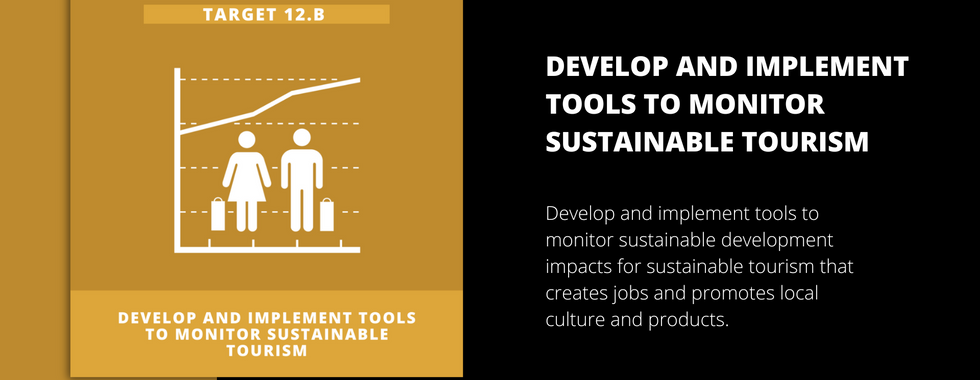Responsible Consumption and Production: Ensuring Sustainable Patterns
- Veronica Spark

- Jan 12, 2025
- 3 min read
Updated: Feb 22, 2025

The world generates over 2 billion tons of waste annually, with only 9% of plastics ever recycled. Sustainable Development Goal 12 (SDG 12) aims to ensure sustainable consumption and production patterns. Our current production and consumption habits are depleting natural resources, increasing pollution, and driving climate change. Transitioning to sustainable practices is essential for protecting ecosystems and ensuring long-term economic stability.
Why Responsible Consumption and Production Matters
Sustainable consumption and production are critical for:
Reducing environmental degradation by minimizing waste and pollution.
Ensuring resource efficiency to meet future demands.
Combating climate change through sustainable supply chains.
Improving health and well-being by reducing exposure to hazardous materials.
Encouraging corporate responsibility and sustainable business practices.
SDG 12: Responsible Consumption and Production Targets
SDG 12 outlines key targets to promote sustainability across industries and consumer behaviors:
Target 12.1: Implement Sustainable Consumption and Production Policies – Integrate sustainable practices into national policies and action plans.
Target 12.2: Efficient Use of Natural Resources – Achieve sustainable management and efficient use of natural resources.
Target 12.3: Halve Global Food Waste – Reduce food waste at retail and consumer levels and cut food losses in production.
Target 12.4: Manage Chemicals and Waste Sustainably – Reduce the release of hazardous materials to minimize environmental and human health impacts.
Target 12.5: Substantially Reduce Waste Generation – Promote waste prevention, recycling, and reuse.
Target 12.6: Encourage Sustainable Business Practices – Motivate companies to adopt sustainable reporting and eco-friendly operations.
Target 12.7: Promote Sustainable Public Procurement – Encourage governments to procure goods and services with minimal environmental impact.
Target 12.8: Ensure Public Awareness on Sustainable Lifestyles – Educate consumers on sustainability and responsible consumption.
Target 12.a: Support Developing Countries in Sustainable Practices – Provide financial and technological support for sustainable consumption and production.
Target 12.b: Develop Sustainable Tourism – Enhance tourism strategies that support local economies while preserving natural and cultural heritage.
Target 12.c: Remove Market Distortions That Encourage Wasteful Consumption – Phase out harmful subsidies and incentives that contribute to overconsumption.
The Role of Social Entrepreneurs in Advancing Responsible Consumption and Production
Social entrepreneurs play a crucial role in transforming consumption and production systems. Their impact includes:
Developing Circular Economy Solutions – Creating business models focused on waste reduction and resource reuse.
Innovating in Sustainable Products – Designing eco-friendly products that minimize environmental impact.
Educating Consumers on Sustainable Choices – Promoting ethical consumerism through awareness campaigns.
Reducing Food Waste – Launching initiatives to repurpose surplus food and prevent food insecurity.
Improving Waste Management Systems – Implementing scalable recycling and waste-to-energy solutions.
Examples of Social Enterprises Advancing Responsible Consumption and Production
1. Too Good To Go – Fighting Food Waste
This mobile app connects consumers with surplus food from restaurants and grocery stores to prevent food waste.
2. TerraCycle – Recycling Hard-to-Recycle Waste
TerraCycle develops innovative recycling programs to repurpose materials that would otherwise end up in landfills.
3. The Renewal Workshop – Circular Fashion Solutions
This company repairs, refurbishes, and resells used clothing, promoting sustainable fashion.
4. Ecoalf – Sustainable Clothing from Recycled Materials
Ecoalf produces high-quality apparel using recycled plastic and fishing nets collected from oceans.
5. Bio-Bean – Turning Coffee Waste into Energy
Bio-Bean collects used coffee grounds and converts them into biofuels, reducing waste and carbon emissions.
Conclusion: Shaping a Sustainable Future
Achieving SDG 12 requires collaboration among businesses, consumers, and policymakers. Social entrepreneurs are pioneering solutions that redefine how we produce and consume goods, ensuring a balance between economic growth and environmental stewardship.
By supporting and adopting sustainable practices, we can create a world where responsible consumption and production lead to a healthier planet and thriving communities.



























